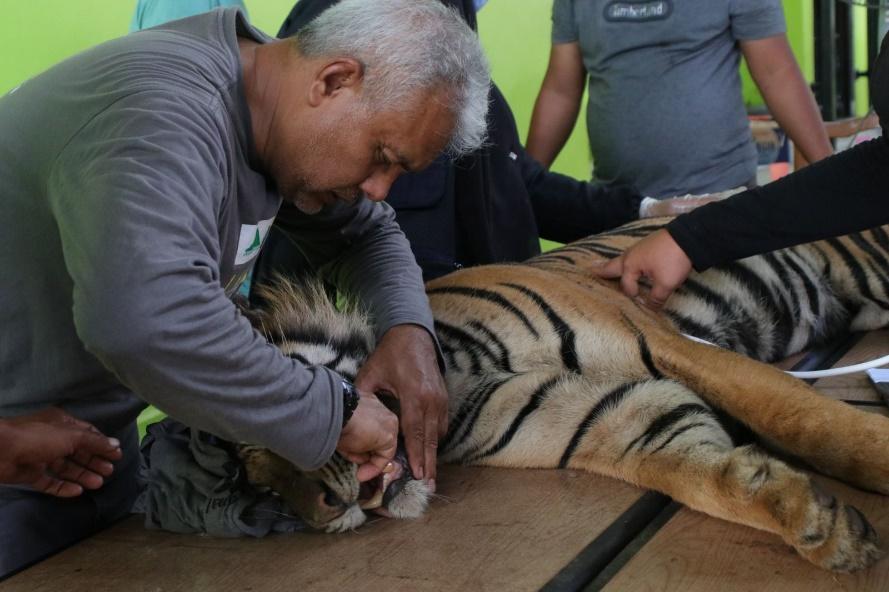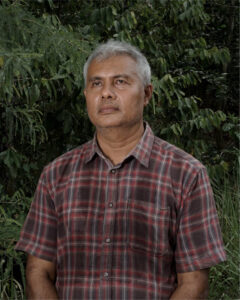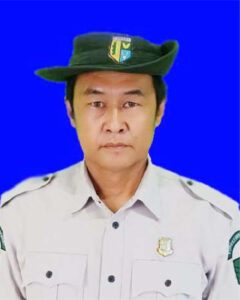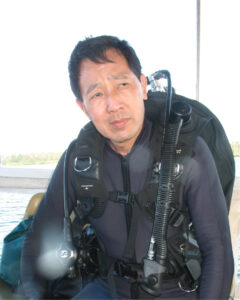
Veterinarian safeguards wildlife in biodiversity hotspot
Having worked as a wildlife veterinarian for nearly three decades, there’s hardly a dull moment for Dr. Anhar Lubis.
Currently the head veterinarian at the Leuser Conservation Forum (Forum Konservasi Leuser – FKL), he has gotten used to expecting the unexpected – whether it be dismantling snares meant to trap elephants, going deep into the forest to treat an injured tiger, or performing a complicated procedure to save a monkey’s life.
Since 2019, Dr. Lubis has immersed himself at the Leuser Ecosystem, a majestic and ancient biodiversity hotspot situated in Aceh and North Sumatra provinces on the island of Sumatra, Indonesia. Spanning more than 2.6 million hectares, it is the last place on earth where orangutans, tigers, rhinos, and elephants roam together in the wild.
Globally recognized as one of the richest expanses of tropical rainforest found anywhere in Southeast Asia, its highly diverse landscape includes lowland rainforests, peat swamps, montane and coastal forests, and alpine meadows. The Leuser Ecosystem is a valuable source of water, carbon, and agricultural livelihood for more than four million people living around the area. Additionally, the ecosystem services it provides are, without a doubt, crucial not just for Indonesia but for the whole world.
The FKL, where Dr. Lubis works as head veterinarian and coordinator for the wildlife rescue team, is a non-profit organization that seeks to conserve and protect the Leuser Ecosystem from imminent threats. Working with local communities and government institutions, the group implements various programs that aim to protect and conserve the ecosystem and the animals that call it home. This includes enlisting more than 100 wildlife protection rangers to patrol the area, destroy snares, gather data on wildlife presence, and become ambassadors for their communities to safeguard creatures of the wild and manage human-wildlife conflict.
Despite the difficulties and demands that his work entails, Dr. Lubis finds his profession immensely rewarding. One of his most noteworthy experiences in recent times happened in October 2020, when the FKL team successfully rescued a female tiger, which they named Malelang Jaya, or MJ. A local official had found her tightly wound up in a wire snare inside the Leuser Ecosystem, most likely trapped there for a couple of days and on the verge of dying. With the help of the authorities and other partners, the FKL team worked together to free MJ from the snare and treat her injuries. Dr. Lubis was among those who performed on-site medical treatment to save MJ’s life, which included administering intravenous fluids, antibiotics, and vitamins. They then moved her to a safer location so the medical team can further observe her condition and apply intensive care. After a month of rehabilitation, MJ was released in a location close to where she was found, allowing her to have a second chance in the wild.
Two months later, in December 2020, Dr. Lubis’ help was sought by Scorpion Foundation Indonesia, a wildlife trade monitoring group, to save a male long-tailed monkey. A concerned local handed over the poor monkey, which was reportedly caught, chained at his waist, and put in a rice sack after he bit some locals in a community. Coming to the monkey’s rescue, Dr. Lubis freed him from the chain, treated his wounds, and gave him vitamins to improve his condition. Shortly after, the monkey was taken to an animal transit center managed by Indonesia’s Natural Resources Conservation Agency (BKSDA) in Stabat, Sumatra.
However, the nature of Dr. Lubis’ line of work is unpredictable, to say the least, and dangerous situations are almost inevitable. In April 2022, as he was trying to free a female Sumatran tiger from a pig trap in South Tapanuli, North Sumatra, he was bitten and clawed by the animal, leaving him with scratches and lacerations on his left arm and leg. Dr. Lubis was called to help rescue the tiger, which had been trapped in a plantation area for roughly three days. The tiger, which was shot by sedatives before attempts were made to free her, suddenly attacked Dr. Lubis then ran into the woods afterwards.
Despite situations like this, Dr. Lubis is not one to give up on wildlife creatures, as he has made it his lifelong mission to protect them. Years before he joined the FKL, in 2006, he founded Veterinary Society for Sumatran Wildlife Conservation (VESSWIC), which works diligently to safeguard elephants and other wildlife creatures in Sumatra.
Since earning his Doctor of Veterinary Medicine degree in 1996, he has devoted his time and skills to play a crucial role in wildlife conservation in Indonesia. For 26 years, he has lent his veterinary expertise to various groups, as well as contributed his knowledge to books and publications that aim to generate awareness about mitigating and preventing human-wildlife conflicts. In addition to working tirelessly to rescue and rehabilitate animals, Dr. Lubis conducts educational and community outreach activities to give voice to those who are often threatened and misunderstood but cannot speak for themselves – the creatures of the wild.


























